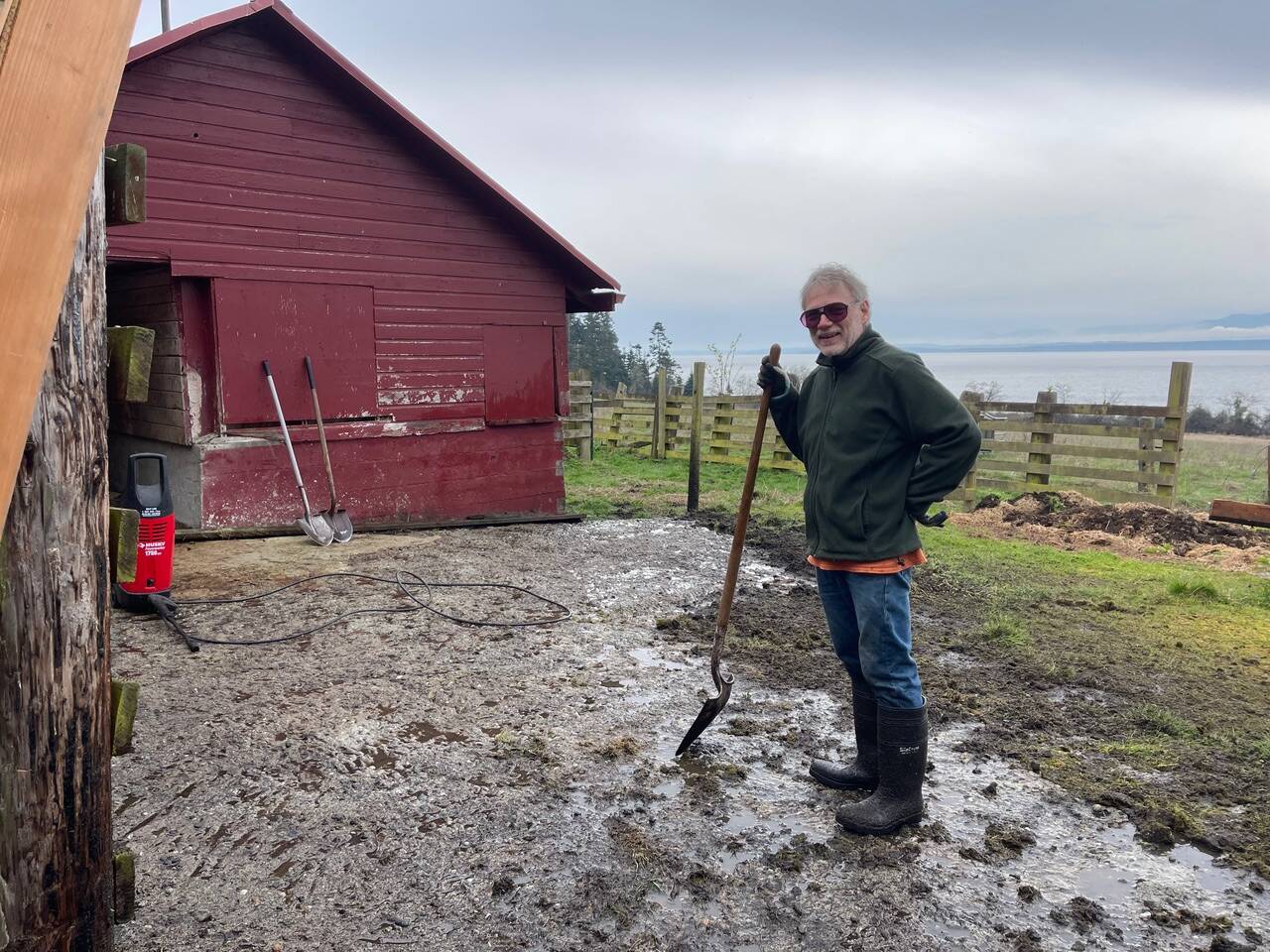The Organic Farm School is hoping to take the saying “many hands make light work” to the next level with the offering of several opportunities for volunteers to contribute their time and learn a thing or two about farming.
The South Whidbey nonprofit organization recently launched a new program for volunteers to help out. Though most of the volunteer opportunities center around the school’s campus in Clinton, one takes place at the Keystone Farm near Coupeville. The Organic Farm School has partnered with the Whidbey Camano Land Trust, which owns the 216-acre property, to manage the historic farm.
Keystone Farm Stewards will meet 9-11 a.m. most Fridays throughout the spring and summer to prepare a specific area near the barn for a demonstration garden. The farm school plans to use regenerative agricultural practices to build soil health, sequester carbon and help ensure a vibrant and nutritious local food supply at Keystone Farm, which is not yet open to the public.
Organic Farm School Executive Director Judy Feldman said the new volunteer program is about the public engaging with the farming community, the local food system and the environment.
“As we’re creating gathering spaces, they’re understanding how we choose and prepare the space,” she said. “As we put in cover crops, they’re getting to hear about why there, why that crop, what’s going to happen next.”
Farmhands – not to be confused with the farm stewards – will complete tasks around the Organic Farm School, from pulling noxious weeds to mowing paths for tractors to creating habitat for beneficial birds and insects. Saturday Sessions will convene on the first and third Saturday of each month, April through September.
Work Traders can help support farm school students in exchange for a bag of fresh produce. They’ll pitch in each week April to October, 8 a.m. to noon, exact day to be decided.
The No-Stoop Group – those with limited mobility who still want to help out – can help proofread newsletters and other mailings.
Feldman said the farm school’s overarching goal has been to reconnect eaters with growers.
“As a society, we’ve all gotten pretty darn disconnected,” she said. “There are kids who don’t know where broccoli comes from. There are adults who don’t quite know how meat is processed.”
Every year, the farm school hosts students for an eight-and-a-half-month program. But not everyone can make such a commitment, and there are plenty of people who are curious about what happens at the farm school.
“Not everybody wants to grow up to be a farmer – sad, but true – but a lot of people want to learn more about it, and they benefit from it,” Feldman said.
Those interested in volunteering can email kirsten@organicfarmschool.org or judy@organicfarmschool.org to learn more.



